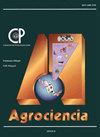深窝养猪生产系统作为一个可持续的替代小农
IF 0.5
4区 农林科学
Q4 AGRICULTURE, MULTIDISCIPLINARY
引用次数: 1
摘要
小型后院农民主要在混凝土地板上养猪,这产生了富含氮物质的废水,这些废水是由连续洗涤猪舍产生的。本研究的目的是对深窝猪生产系统(SPCCP)作为墨西哥小农环境可持续替代方案的信息进行系统综述。SPCCP使用一层吸收性有机物质来饲养动物。该技术被认为是经济可行的,因为它需要较少的基础设施。有利于有机质转化的层理高度为50 ~ 60 cm。农业副产品,如植物碎片或残茬可用于垫层。深窝猪的生产参数充足,劳动力成本较低,动物有更多的时间吃、喝、玩,提高了动物福利。在生产周期结束时从深床中获得的产品具有使退化土壤再生或肥沃土壤的理想特性,并可用于农业作物。SPCCP简单高效,所需的基础设施和设备更经济;该生产系统提高了饲料转化率和日增重,有利于动物健康和舒适。由于这个系统不需要清洗棚子,它减少了劳动力和水的需求,而且不会产生废水。因此,SPCCP符合技术、财务、环境和动物福利的特点;这是小型后院生产者的另一种选择。本文章由计算机程序翻译,如有差异,请以英文原文为准。
DEEP LITTER PIG PRODUCTION SYSTEM AS A SUSTAINABLE ALTERNATIVE FOR SMALL FARMERS
Small backyard farmers produce pigs mainly on concrete floors, which generates wastewater rich in nitrogenous substances created by the continuous washing of the sheds. The objective of this study was to integrate a systematic review of the information on the deep litter pig production system (SPCCP) as an environmentally sustainable alternative for small farmers in Mexico. The SPCCP uses a layer of absorbent organic matter on which the animals are kept. This technology is considered economical to implement, as it requires less infrastructure. The height of the bedding that favours the transformation of organic matter is 50 to 60 cm. Agricultural by-products such as plant debris or stubble can be used for bedding. The productive parameters of pigs in deep litter (CP) are adequate, with lower labour costs, and the animals have more time to eat, drink and play, which improves animal welfare. The product obtained from the deep bed at the end of the productive cycle has desirable properties to regenerate degraded soils or to enrich soils and can be used in agricultural crops. The SPCCP is simple and efficient, the infrastructure and equipment required are more economical; this production system improves feed conversion and daily weight gain, and benefits animal health and comfort. Since this system does not require washing the sheds, it reduces labour, as well as water needs, and does not generate wastewater. Therefore, the SPCCP complies with technical, financial, environmental, and animal welfare characteristics; it is an alternative for small backyard producers.
求助全文
通过发布文献求助,成功后即可免费获取论文全文。
去求助
来源期刊

Agrociencia
农林科学-农业综合
CiteScore
0.50
自引率
33.30%
发文量
51
审稿时长
18-36 weeks
期刊介绍:
AGROCIENCIA is a scientific journal created and sponsored by the Colegio de Postgraduados. Its main objective is the publication and diffusion of agricultural, animal and forestry sciences research results from mexican and foreign scientists. All contributions are peer reviewed. Starting in the year 2000, AGROCIENCIA became a bimonthly and fully bilingual journal (Spanish and English versions in the same issue). Since 2007 appears every month and a half (eight issues per year). In addition to the printed issues, the full content is available in electronic format.
 求助内容:
求助内容: 应助结果提醒方式:
应助结果提醒方式:


